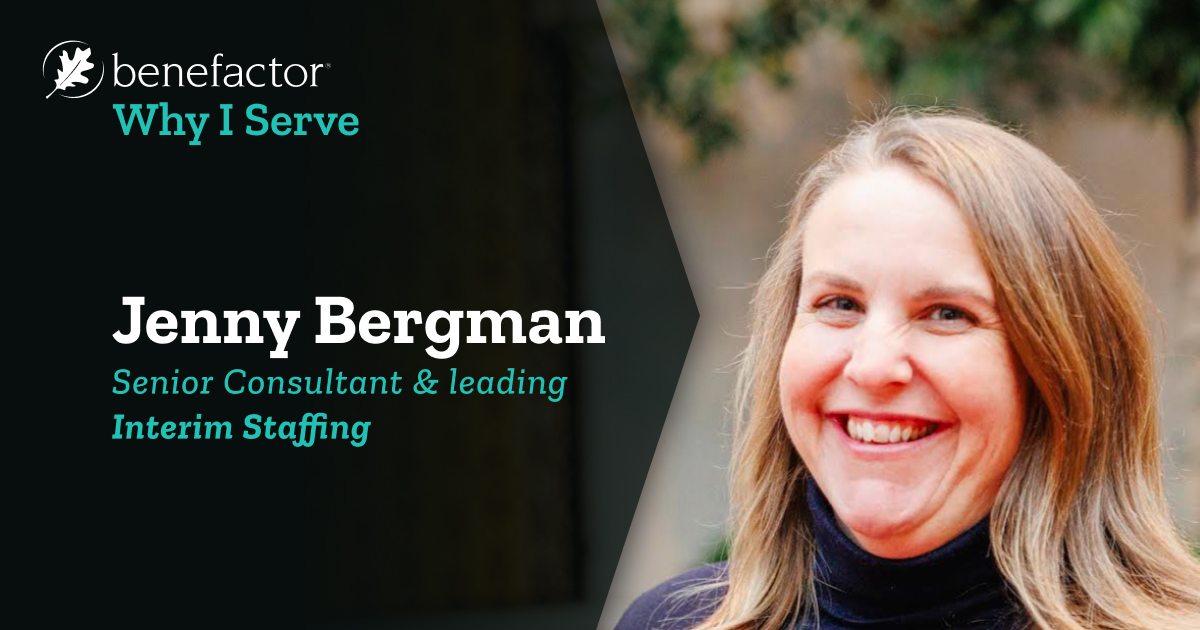Why did you get involved with serving nonprofit organizations?
When I was growing up, our kitchen table was the glue that held our household together. There were always “extras” gathered around the table—the neighbor who my mom had taken under her wing, the helping hands on the farm, our parish priest. It was also where I learned my love of democracy: watching CBS Sunday Morning with Charles Osgood, Meet the Press with Tim Russert, or simply discussing religion or politics with my parents.
What this taught me is that serving your community and being civically engaged are two of the most important things you can do. I always said I “fell into development” but now realize there was a clear path that leads right back to my childhood table.
Why did you join Benefactor Group?
The people. The culture. The right fit at the right time.
What has struck me most about Benefactor Group is the team’s broad and deep knowledge of the sector. In addition, everyone is self-aware and always trying to improve—I understand that “curiosity” is a major tenet of the team’s interviewing process. And I do love to ask questions!
In general, I am so thrilled to help expand the team’s interim service capabilities and build the capacity of the nonprofit sector.
What inspires you to serve the common good?
Before I respond, I want to share the definition of the common good: anything that benefits and is naturally shared by all members of a given community. When I studied the common good in my political science coursework, it was focused on infrastructure such as roads, public safety, or clean water—which parallels nicely to the nonprofit sector.
I have been inspired when advising nonprofits that transcend norms and think outside the box to benefit their communities: from building endowment for the arts, to strengthening board governance, to developing a strategic plan that is not confined to a shelf. This work inspires me to continue serving the common good. Because without the common good, we would live in a world without inspiration.
We are living in rapidly changing times – which extends to the philanthropic landscape. What gives hope for the future of philanthropy over the next five years?
Generation Z gives me immense hope for the future of philanthropy. Often referred to as “the activist” generation, Gen Z has shown they approach philanthropy differently.
- They are a generation who has never been without social media, and they are using that to their advantage by galvanizing support for particular causes.
- They are led by passion. I have seen organizations build capacity by engaging this generation with their time and skills rather than their money.
- They are led not only by passion but by their core values which is why they often turn towards grassroots organizations that align with those values.
In traditional fundraising, it can be easy to focus on your biggest donors, rather than what Gen Z can offer. But imagine if we would engage this generation in conversations now…in a few years, this could be transformative to organizations. It’s like the woman who made $100 gifts every year for 50 years to the same organization—and then left millions in her estate plan to that same organization.
What influences how you give, volunteer, or advocate?
There is a quote by Mr. Rogers that sits on my desk and has since my very first job. “We live in a world in which we need to share responsibility. It’s easy to say ‘It’s not my child, not my community, not my world, not my problem.’ Then there are those who see the need and respond. I consider those people my heroes.”
I think about this quote each day when I am engaging in the nonprofit or public policy sector. I get to work with some of the best organizations doing the best work to make our communities better. I follow the same method when I choose to give, volunteer, and advocate.
If you could make a $1 million gift to any organization, where would you direct your contributions and why?
I think more so than directing my contribution, I would want to ensure the process is equitable. There are so many deserving organizations who may or may not need the money but have missions that are engaging in effective change no matter the specific sector. I would ask myself a question, how can I be the hub that creates multiple spokes to support a greater cause?
Where can someone find you when you’re not at work?
Around the kitchen table with friends, laughter, good food, and wine.
What are you currently reading, or what do you recommend?
Each year, I collate three books that I have read and give them as gifts. In 2023, I gifted the following to mentors and friends:
- Hidden Potential by Adam Grant – this isn’t a leadership book; it is an idea book! It truly breaks stereotypes.
- Crying in H Mart by Michelle Zauner – a heartfelt memoir about grief, mother-daughter relationships, and the tantalizing love affair with Korean food.
- A Fever in the Heartland: The Ku Klux Klan’s Plot to Take Over America, and the Woman Who Stopped Them by Timothy Egan – a story of the Klan’s rise to power in the Midwest in the 1920’s, and even more so the story of Madge Oberholtzer who inevitably led the charge to the Klan’s demise.





